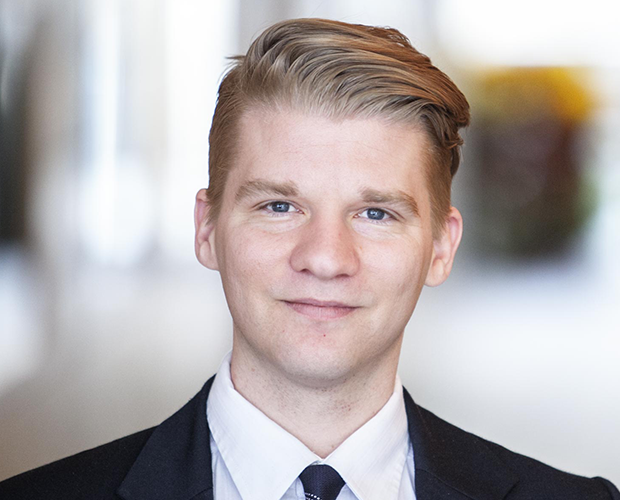West Coast-Trained for a Washington, D.C. Think Tank

A Q&A with Kent Boydston, MPIA ’15 as seen in the September/October 2017 issue of Foreign Affairs
Aug. 2, 2017 | By Foreign Affairs (original story)
Immediately after the School of Global Policy and Strategy (GPS), you headed to Washington, D.C., as a research analyst at the Peterson Institute for International Economics. What are you working on now, and how did your graduate studies help?
Currently, I track various metrics for measuring the North Korean economy to ascertain how and at what levels their economy is growing. I also have an ongoing project assessing the extent of South Korean humanitarian and economic aid in North Korea.
I have always wanted to be in the mix of discussions on U.S. foreign policy in East Asia, and Washington, D.C., is the hub. GPS combines quantitative analysis skills and top-notch research and was the best place for my studies.
What lessons prepared you to work at a leading think tank?
I use my quantitative skills every day. The economics training at GPS is great, and so is the broad training in public policy. In a town like Washington, D.C., you are never too far removed from politics, and I gained a superb foundation for understanding this. It is not about learning facts; it is about acquiring that foundation to analyze problems in many contexts.
North Korea represents uncertainty for many in the world. What are your thoughts on the current tensions?
We are in a very difficult time. We need bold new ideas to signal the intent of the U.S. toward long-term peace and engagement with North Korea while simultaneously improving sanctions enforcement and continuing to punish aberrant behavior. This is not an easy balance to find.
Just as important as analyzing these complex policy issues, it is necessary to connect them with stakeholders. That is why I maintain relationships with government officials, diplomats, and members of the media. This makes my work better but also allows for opportunities to share it with others.
As a graduate student, how pivotal were your multiple fellowships?
Immensely pivotal. The Robertson Foundation for Government Fellowship provided unparalleled financial assistance to support my training in public policy with an eye on public service. The Boren Fellowship provided funding to study Korean in South Korea, and the Rosenthal Fellowship supported my U.S. Department of State internship. The Career Services staff at GPS kept me up to speed with fellowship deadlines and made sure my applications were solid.
To what extent has your collaborative work with faculty benefitted you?
While a student, I had the chance to work with truly fantastic professors such as Stephan Haggard and Susan Shirk—experts in Korea and China, respectively. It is hard to imagine a better place to study if you want to think deeply and critically about Northeast Asia policy.
I am currently working on research with Stephan Haggard and writing posts for his and Marcus Noland’s blog, North Korea: Witness to Transformation. Faculty members Susan Shirk and Emilie Hafner-Burton also have been very helpful in encouraging me in my career and carrying on policy discussions even after classes ended.

